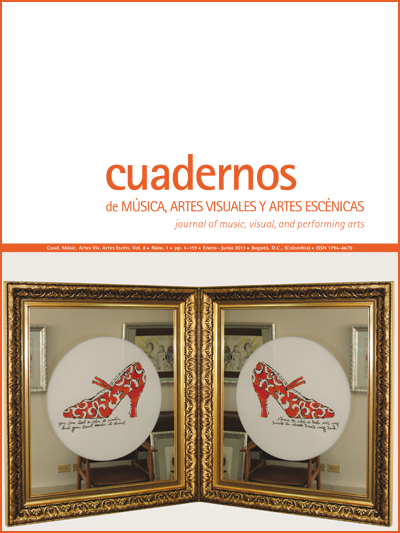Resumen
En la Antigüedad, la música se definía en términos de memoria, no de temporalidad. Por un artificio de escritura, la música occidental comienza a considerarse como un arte temporal. En la notación diastemática, la duración es relacionada con una línea recta cuyas propiedades –divisibilidad, homogeneidad, continuidad– son paulatinamente asignadas al tiempo. Gracias a esta relación, el número, la proporción y el espíritu geométrico pueden aplicarse a la duración y solo entonces se empieza a hablar de un tiempo propiamente musical. Con el desarrollo de la escritura sobre pentagrama, el problema filosófico fundamental para la música es la construcción racional del tiempo. En este artículo, se hace un seguimiento al proceso histórico que da lugar a esta construcción. Igualmente, se intenta poner en evidencia las implicaciones epistemológicas de este concepto a partir del paralelo entre la noción de tiempo trabajada en la partitura y el concepto de tiempo desarrollado por la ciencia occidental.Esta revista científica se encuentra registrada bajo la licencia Creative Commons Reconocimiento 4.0 Internacional. Por lo tanto, esta obra se puede reproducir, distribuir y comunicar públicamente en formato digital, siempre que se reconozca el nombre de los autores y a la Pontificia Universidad Javeriana. Se permite citar, adaptar, transformar, autoarchivar, republicar y crear a partir del material, para cualquier finalidad, siempre que se reconozca adecuadamente la autoría, se proporcione un enlace a la obra original y se indique si se han realizado cambios. La Pontificia Universidad Javeriana no retiene los derechos sobre las obras publicadas y los contenidos son responsabilidad exclusiva de los autores, quienes conservan sus derechos morales, intelectuales, de privacidad y publicidad.
El aval sobre la intervención de la obra (revisión, corrección de estilo, traducción, diagramación) y su posterior divulgación se otorga mediante una licencia de uso y no a través de una cesión de derechos, lo que representa que la revista y la Pontificia Universidad Javeriana se eximen de cualquier responsabilidad que se pueda derivar de una mala práctica ética por parte de los autores. Como consecuencia de la protección brindada por la licencia de uso, la revista puede publicar retractaciones o corregir la información ya publicada. La publicación de contenidos en esta revista no representa regalías para los contribuyentes.


